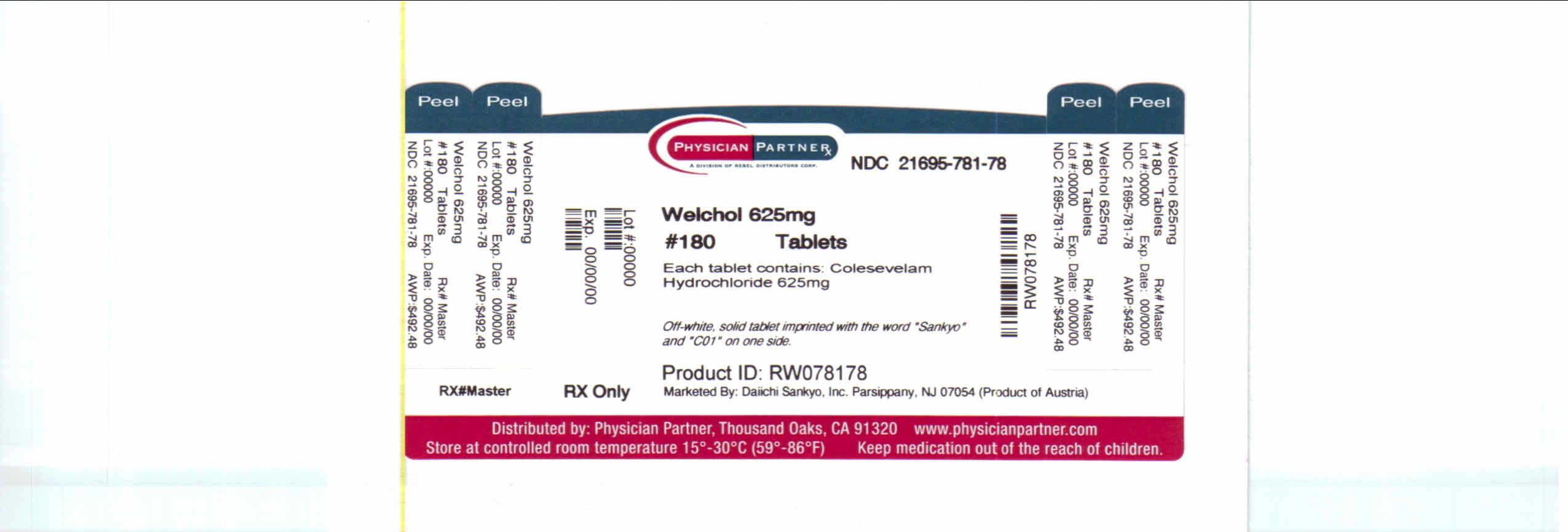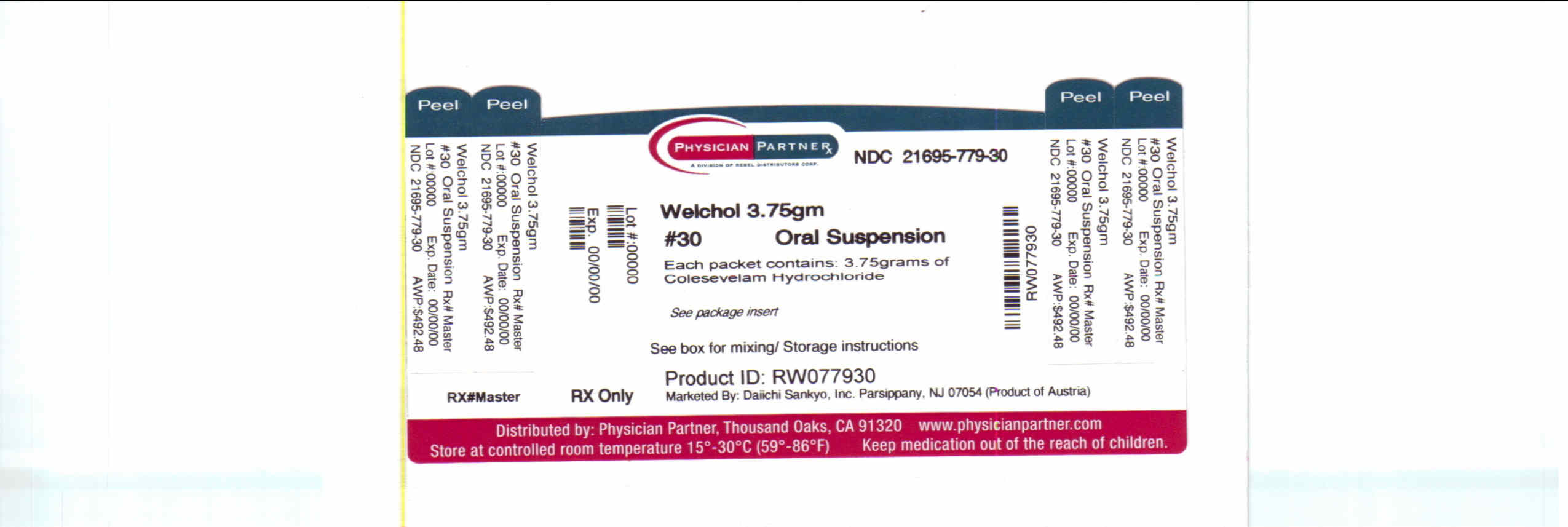Most health expert recommend six month of exclusive breastfeeding but statics suggest that numbers are not good, almost 95% mothers start breastfeeding but this number drops to 40% in first three month and further it drops to 15% till fifth month. Sometime its due to need of medication usage. Because of these statics its important to provide good information on safety of drugs in breastfeeding so that it can be improved when possible. In this FAQ sheet we will discuss about exposure to Welchol | Colesevelam Hydrochloride Tablet while breastfeeding. We will also discuss about common side effects and warnings associated with Welchol | Colesevelam Hydrochloride Tablet.
What is Welchol | Colesevelam Hydrochloride Tablet used for?
WELCHOL is a bile acid sequestrant indicated as an adjunct to diet and exercise to reduce elevated low-density lipoprotein cholesterol (LDL-C) in adults with primary hyperlipidemia as monotherapy or in combination with an hydroxymethyl-glutaryl-coenzyme A (HMG CoA) reductase inhibitor (statin) (1.1). reduce LDL-C levels in boys and postmenarchal girls, 10 to 17 years of age, with heterozygous familial hypercholesterolemia as monotherapy or in combination with a statin after failing an adequate trial of diet therapy improve glycemic control in adults with type 2 diabetes mellitus (1.2). Important Limitations of Use (1.3): Do not use for glycemic control in type 1 diabetes or for treating diabetic ketoacidosis. WELCHOL has not been studied in type 2 diabetes as monotherapy or in combination with a dipeptidyl peptidase 4 inhibitor and has not been extensively studied in combination with thiazolidinediones. WELCHOL has not been studied in Fredrickson Type I, III, IV, and V dyslipidemias. WELCHOL has not been studied in children younger than 10 years of age or in pre-menarchal girls. 1.1 Primary Hyperlipidemia WELCHOL is indicated as an adjunct to diet and exercise to reduce elevated low-density lipoprotein cholesterol (LDL-C) in adults with primary hyperlipidemia (Fredrickson Type IIa) as monotherapy or in combination with an hydroxymethyl-glutaryl-coenzyme A (HMG CoA) reductase inhibitor (statin). WELCHOL is indicated as monotherapy or in combination with a statin to reduce LDL-C levels in boys and postmenarchal girls, 10 to 17 years of age, with heterozygous familial hypercholesterolemia if after an adequate trial of diet therapy the following findings are present: a. LDL-C remains ≥ 190 mg/dL or b. LDL-C remains ≥ 160 mg/dL and there is a positive family history of premature cardiovascular disease or two or more other CVD risk factors are present in the pediatric patient. Lipid-altering agents should be used in addition to a diet restricted in saturated fat and cholesterol when response to diet and non-pharmacological interventions alone has been inadequate [See Clinical Studies (14.1)]. In patients with coronary heart disease (CHD) or CHD risk equivalents such as diabetes mellitus, LDL-C treatment goals are < 100 mg/dL. An LDL-C goal of < 70 mg/dL is a therapeutic option on the basis of recent trial evidence. If LDL-C is at goal but the serum triglyceride (TG) value is > 200 mg/dL, then non-HDL cholesterol (non-HDL-C) (total cholesterol [TC] minus high density lipoprotein cholesterol [HDL-C]) becomes a secondary target of therapy. The goal for non-HDL-C in persons with high serum TG is set at 30 mg/dL higher than that for LDL-C. 1.2 Type 2 Diabetes Mellitus WELCHOL is indicated as an adjunct to diet and exercise to improve glycemic control in adults with type 2 diabetes mellitus [See Clinical Studies (14.2)]. Diabetes mellitus is considered a CHD risk equivalent. In addition to glycemic control, intensive lipid control is warranted [See Indications and Usage (1.1) and Warnings and Precautions (5.2)]. 1.3 Important Limitations of Use WELCHOL should not be used for the treatment of type 1 diabetes or for the treatment of diabetic ketoacidosis. WELCHOL has not been studied in type 2 diabetes as monotherapy or in combination with a dipeptidyl peptidase 4 inhibitor and has not been extensively studied in combination with thiazolidinediones. WELCHOL has not been studied in Fredrickson Type I, III, IV, and V dyslipidemias. WELCHOL has not been studied in children younger than 10 years of age or in pre-menarchal girls.
I am currently breastfeeding and I want to know if using Welchol | Colesevelam Hydrochloride Tablet is safe for my kid? Does it have any effect on milk production?
Active ingredient in Welchol | Colesevelam Hydrochloride Tablet is Colesevelam hydrochloride and based on our analysis of Colesevelam hydrochloride it appears that using Welchol | Colesevelam Hydrochloride Tablet is safe in breastfeeding. Below is analysis of Colesevelam hydrochloride while breastfeeding.
Statement of Manufacturer/Labeler about breastfeeding usage
8.3 Nursing Mothers Colesevelam hydrochloride is not expected to be excreted in human milk because colesevelam hydrochloride is not absorbed systemically from the gastrointestinal tract.
Welchol | Colesevelam Hydrochloride Tablet Breastfeeding Analsys
SafeCAS Number: 182815-43-6
We are working on a comment for this product.
Welchol | Colesevelam Hydrochloride Tablet Breastfeeding Analsys - 2
CAS Number: 182815-43-6
Colesevelam is a nonabsorbable resin. Because it does not enter the mother's bloodstream, it will not reach the infant via breastmilk. It is acceptable for use during lactation.

What should I do if already breastfed my kid after using Welchol | Colesevelam Hydrochloride Tablet?
Welchol | Colesevelam Hydrochloride Tablet is safe in breastfeeding and should not create any health problem for your baby but in case you feel any health issue associated with Welchol | Colesevelam Hydrochloride Tablet you should contact your doctor or health care provider. Be it pregnancy or lactation you shall keep your doctor informed.
My health care provider has asked me to use Welchol | Colesevelam Hydrochloride Tablet, what to do?
Usage of Welchol | Colesevelam Hydrochloride Tablet is safe for nursing mothers and baby, No worries.
If I am using Welchol | Colesevelam Hydrochloride Tablet, will my baby need extra monitoring?
No
Who can I talk to if I have questions about usage of Welchol | Colesevelam Hydrochloride Tablet in breastfeeding?
US
National Womens Health and Breastfeeding Helpline: 800-994-9662 (TDD 888-220-5446) 9 a.m. and 6 p.m. ET, Monday through Friday
UK
National Breastfeeding Helpline: 0300-100-0212 9.30am to 9.30pm, daily
Association of Breastfeeding Mothers: 0300-330-5453
La Leche League: 0345-120-2918
The Breastfeeding Network supporter line in Bengali and Sylheti: 0300-456-2421
National Childbirth Trust (NCT): 0300-330-0700
Australia
National Breastfeeding Helpline: 1800-686-268 24 hours a day, 7 days a week
Canada
Telehealth Ontario for breastfeeding: 1-866-797-0000 24 hours a day, 7 days a week
Drug Brands with same Active ingredients



